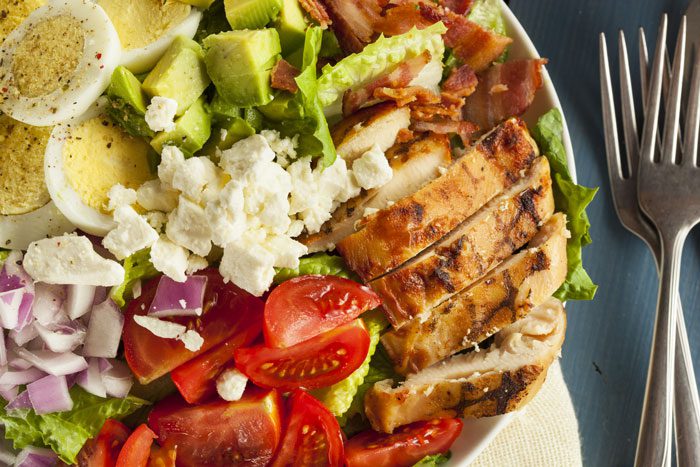By Sandy Baker
Nutrition plays an important role in your overall well-being.
Consider a person who is ill, perhaps with a physical injury or a disease. Their body’s immune system goes to work for them, fighting off the infection and working to heal the damaged cells and tissues. To do this, the immune system and each individual cell need proper nutrition to get from a damaged level to a healthy, functional level.
The same is true in addiction recovery. If you do not provide your body with the nutrition it needs to heal, it cannot do so. Healthy food isn’t always the first thing on the minds of those who are battling years of abuse and a combination of physical and emotional stress. Yet, it should be. By giving your body nutrition, you give it the tools it needs to help you to heal and start feeling good.
Why It Is So Challenging to Care About Food
In any addiction treatment center, healthy food is something you will have access to but will probably not think about or prioritize. That’s because you are working to get past your current, immediate crisis. As you detox and become more stable, you might start to notice your relationship with food. In some people, a pre-existing eating disorder, such as binge eating, can present itself during recovery. Others might crave junk food as a way to replace the alcohol or drugs they were consuming.
Many people in recovery grew up eating soda, candy, and fast food. They see this as normal. So, when presented with healthy food that they are not used to consuming, it seems like yet another hurdle to get over in recovery.
But your body needs good nutrition to heal. Without it, the recovery process is slow and more susceptible to relapse.
Your Addicted Body Loses Nutrition
During your addiction period, when you are using at your highest level, you will experience some level of nutritional loss. Many people who come in for treatment are at the point of being malnourished. Their body is not used to routine meals. They are not used to consuming fresh fruits and vegetables. The following deficiencies are common in those who are malnourished:
- Iron (dizziness, pain in the hands and feet, pale skin)
- Vitamin D (often leading to bone pain and muscle weakness)
- Vitamin B6 (depression, confusion, and even seizures are common)
- Calcium (malnutrition and malabsorption, loss of weight)
- Omega 3-fatty acids (especially in hard drug users such as cocaine users)
- Magnesium (often noticeable by a weakness or insomnia)
- Vitamin K (with noticeable slow healing wounds)
- Vitamin C (immune system challenges are present)
Some people may have a combination of these deficiencies, making it hard to pinpoint which nutrient is lowest. More so, it is not possible to simply take a multivitamin and assume this will balance things out.
What Type of Food Do Those Struggling with Addiction Need?
What should you eat if you are in detox and recovery? Generally speaking, a well-balanced diet is what you need the most. Your recovery diet should do the following:
- Give your body necessary protein. Protein is the tool your body will use to build muscle. It also helps in the building of neurotransmitters.
- Improve your intake of fiber. Get it from vegetables and fruits. This helps to stimulate the gut and stomach, while also ensuring less risk of constipation when a person gets back to a healthy diet and lifestyle.
- Reduce your sugar intake. Doing so will help the body to stabilize blood sugars, creating less of a craving for foods and better balancing mood and emotional health.
- Eat natural foods. Instead of processed or boxed foods, go for foods that are natural. Look for ingredients lists that consist of real foods, not difficult-to-pronounce compounds, preservatives, and chemicals.
- Get healthy fats. Healthy fats come from foods such as olive oil, fatty fish, nuts, and avocados, and help stimulate brain health and development.
You’ll also want to reduce the amount of caffeine you take in (as it mimics the intake of addictive substances) while also making decisions about water consumption. Drink more water, less coffee. Eat whole grains instead of “white” processed foods. (see related article: Nutritional Therapy)
It seems like a challenge, but it is one you can overcome. The key here is to have the help you need as soon as you enter detox. Giving your body proper nutrition now may help to reduce some of the symptoms you feel. Learn more about the nutrition that’s right for your body by contacting The Ranch at Dove Tree today. Good nutrition is just a part of a healthy lifestyle and your recovery.
Sources:
Burden and Nutritional Deficiencies in Opiate Addiction- Systematic Review Article. U.S. National Library of Medicine.
Substance use recovery and diet. Medline Plus.
Wellness Strategies. SAMHSA.
Genetics and Epigenetics of Addiction. National Institute on Drug Abuse.







